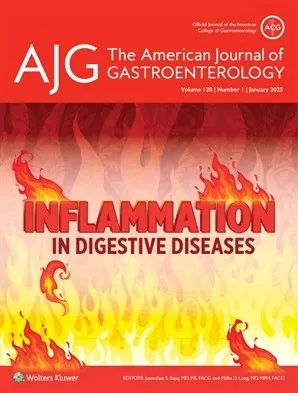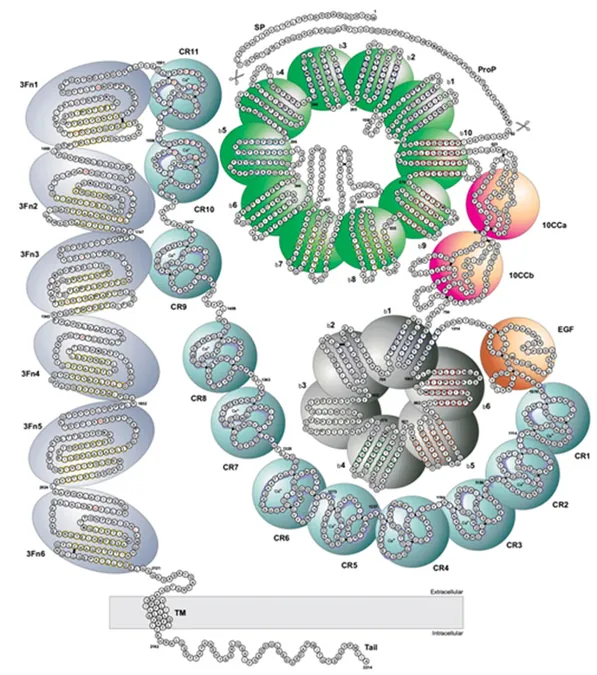
Major Update in Gastroenterology: ACG's New Guidelines on Eosinophilic Esophagitis in January 2025 Issue
2025-01-17
Author: Jia
The upcoming January 2025 edition of The American Journal of Gastroenterology is set to shed light on the critical topic of inflammation, featuring comprehensive articles and reviews about various digestive diseases. This issue includes an important update to the American College of Gastroenterology (ACG) Clinical Guidelines on eosinophilic esophagitis (EoE), an increasingly recognized condition that can severely impact patients' quality of life.
Co-Editors-in-Chief, Dr. Jasmohan Bajaj and Dr. Millie Long, emphasized the diverse nature of inflammatory disorders, stating, “Each inflammatory disorder or complication we discuss has a differing etiology, diagnostic work-up, and treatment strategy, yet are bound by the underlying inflammatory pathology.” This statement captures the essence of their issue, which delves deep into how inflammation manifests differently throughout the digestive system.
Key Features of the Updated ACG Clinical Guideline on EoE
The updated guideline presents 19 recommendations focusing on EoE's diagnosis and management. Some of the strong recommendations include:
- The implementation of a systematic endoscopic scoring system during each endoscopy to clearly describe findings.
- The recommendation for using swallowed topical steroids as a primary treatment for EoE.
Conditional recommendations also suggest considering proton pump inhibitors, along with fluticasone propionate or budesonide for patients undergoing treatment with topical steroids. Furthermore, these guidelines pay particular attention to pediatric concerns regarding the management of EoE, a significant aspect given the rising incidence of EoE in children.
Innovative Research Contributions in the Field
The issue also features intriguing studies, including:
1. Anti-Tumor Necrosis Factor Therapy and Gestational Diabetes A nationwide cohort study by Cho et al. explored the relationship between anti-TNF treatments in pregnant women with IBD and the risk of gestational diabetes mellitus (GDM). The findings were promising, indicating that women who underwent anti-TNF therapy during early pregnancy had a decreased risk of developing GDM.
2. Predicting Mucosal Inflammation through Deep Learning A groundbreaking study by Lee et al. employed a deep learning model using smartphone photos of stool samples to predict endoscopic mucosal inflammation in patients with ulcerative colitis. This innovative approach demonstrated similar accuracy to traditional fecal calprotectin tests in forecasting disease activity, potentially revolutionizing how clinicians monitor patients.
As the January 2025 issue approaches, it is poised to become a vital resource for physicians and researchers alike, offering the latest evidence-based practices in the realm of gastrointestinal inflammation. Stay tuned for further updates and discussions as these important findings are explored in greater detail!




 Brasil (PT)
Brasil (PT)
 Canada (EN)
Canada (EN)
 Chile (ES)
Chile (ES)
 Česko (CS)
Česko (CS)
 대한민국 (KO)
대한민국 (KO)
 España (ES)
España (ES)
 France (FR)
France (FR)
 Hong Kong (EN)
Hong Kong (EN)
 Italia (IT)
Italia (IT)
 日本 (JA)
日本 (JA)
 Magyarország (HU)
Magyarország (HU)
 Norge (NO)
Norge (NO)
 Polska (PL)
Polska (PL)
 Schweiz (DE)
Schweiz (DE)
 Singapore (EN)
Singapore (EN)
 Sverige (SV)
Sverige (SV)
 Suomi (FI)
Suomi (FI)
 Türkiye (TR)
Türkiye (TR)